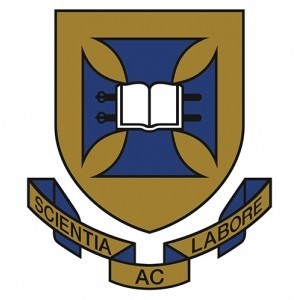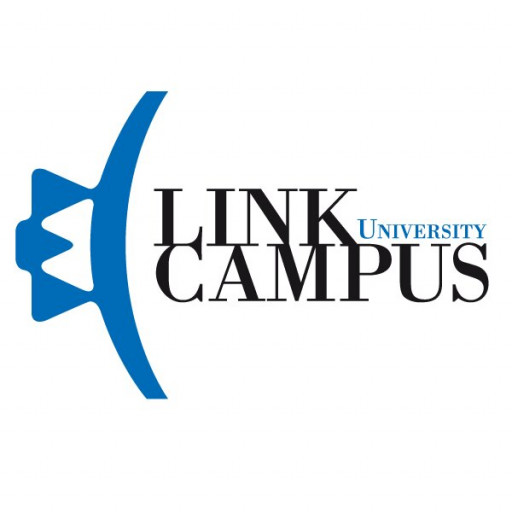Photos of university / #uniofqld
The Bachelor of Community Relations at The University of Queensland offers students a comprehensive education designed to prepare them for impactful careers in community engagement, development, and communication. This program provides a multidisciplinary approach, combining aspects of social sciences, communication, and public policy to equip graduates with the skills necessary to foster meaningful relationships between organizations and communities. Students will explore the principles of community development, stakeholder engagement, and social innovation, gaining practical experience through internships, project work, and community-based initiatives. The curriculum emphasizes critical thinking, cultural awareness, and ethical considerations, ensuring graduates are capable of addressing complex social issues and advocating for positive change. Throughout their studies, students will develop competencies in strategic communication, program planning, and community consultation, making them valuable assets to government agencies, non-profit organizations, and private sector entities involved in community service. The program also encourages students to understand diverse community needs and to design inclusive and sustainable solutions tailored to specific contexts. By the end of their degree, graduates will be prepared to work effectively with various stakeholders, facilitating dialogue, building partnerships, and implementing initiatives that promote social cohesion and community well-being. The Bachelor of Community Relations is ideal for individuals passionate about making a difference and committed to fostering social justice and empowerment at local, national, and global levels.
The Bachelor of Community Relations at the University of Queensland is a comprehensive undergraduate program designed to equip students with the skills and knowledge necessary to foster effective communication and engagement between organizations and their diverse communities. This program emphasizes the development of strategic communication techniques, community engagement practices, and an understanding of social, cultural, and environmental issues impacting communities locally and globally. Students will explore topics such as public relations, media management, stakeholder engagement, advocacy, and social change, preparing them for careers in NGOs, government agencies, corporate social responsibility departments, and community development organizations. The curriculum includes both theoretical foundations and practical applications, offering students opportunities for internships, collaborative projects, and real-world case studies. Graduates of this program will be able to design and implement community engagement strategies, analyze community needs, and communicate effectively across various platforms and audiences. The Bachelor of Community Relations aims to produce graduates who are capable of fostering positive relationships, advocating for community interests, and contributing meaningfully to societal development. The program is delivered by experienced faculty members with expertise in communication, sociology, environmental studies, and public policy. It also emphasizes ethical practice, cultural competence, and sustainability to prepare students for the complex challenges faced by communities today. By completing this degree, students will be well-equipped to pursue diverse careers that require excellent communication skills, community awareness, and a commitment to social justice and sustainable development. Overall, the Bachelor of Community Relations offers a dynamic and engaging educational experience that combines theoretical knowledge with practical skills to enable graduates to make a positive impact in their communities and beyond.
Undergraduate students undertaking the Bachelor of Community Relations at The University of Queensland are required to complete a total of 240 credit points over the duration of the program. The program typically spans three years of full-time study, with students taking a combination of core and elective courses as specified by the faculty. The core curriculum includes foundational subjects in community engagement, communication, ethics, and social impact, designed to equip students with the essential knowledge and skills necessary for effective community relations practice. In addition to the core courses, students are encouraged to select electives that align with their specific interests within the field, such as public policy, cultural diversity, media relations, or nonprofit management.
Throughout the program, students are expected to engage in practical learning experiences, which may include internships, community projects, or industry placements coordinated by the university. These opportunities provide real-world context and facilitate the development of professional competencies. To graduate, students must achieve passing grades in all required subjects, maintain a minimum overall GPA of 4.0 on a 7-point scale, and meet any additional program-specific requirements such as capstone projects or community service requirements. The program also emphasizes ethical practice, strategic communication skills, and cultural competence, preparing graduates for diverse roles within government agencies, nonprofit organizations, corporate social responsibility departments, and community advocacy groups.
Students are advised to adhere to the prescribed course sequence and consult the academic calendar regularly to stay informed about program milestones, assessment deadlines, and any curriculum updates. International students should ensure compliance with visa conditions relating to work and study permissions while participating in community engagement activities. The program promotes lifelong learning and professional development, encouraging students to pursue further specialization or postgraduate studies to enhance their expertise in community relations and public engagement. Overall, the program aims to produce socially responsible professionals capable of leading and innovating in the ever-evolving field of community relations.
The University of Queensland offers various financial support options for students enrolled in the Community Relations program. Domestic students can access government assistance schemes such as FEE-Help, which is a government loan program designed to assist eligible students with their tuition fees. This allows students to undertake their studies without the immediate financial burden, paying the loan back once their income exceeds a certain threshold after graduation. International students are responsible for paying their tuition fees upfront or through a suitable payment plan, as government aid programs like FEE-Help are not available to them. The university also provides scholarship opportunities to both domestic and international students based on academic merit, need, or specific criteria related to community engagement or leadership qualities. These scholarships can significantly reduce the overall cost of the program. Additionally, students may consider external funding sources, including private scholarships, bursaries, and sponsorships available through community organizations, companies, or educational foundations. The university maintains a comprehensive fees schedule, updated annually, which details the costs associated with the Community Relations program, including tuition, registration fees, and any incidental charges. Students are encouraged to explore the university’s financial services and student support departments for personalized advice and assistance with scholarship applications, payment plans, and financial planning. The cost of the program may vary depending on the student’s residency status, enrollment mode (full-time or part-time), and any additional fees for specific courses or modules. It is advisable for prospective students to review the university’s official website and contact the admissions office for the most current and detailed financing information relevant to their circumstances. Overall, the University of Queensland is committed to providing accessible education through a combination of government schemes, scholarships, and financial counseling, helping students focus on their academic and professional goals in the Community Relations field.
Community Relations at The University of Queensland is a comprehensive program designed to equip students with the skills and knowledge necessary to build and maintain effective relationships between organizations and the communities they serve. This degree emphasizes a multidisciplinary approach, integrating principles from communication, public relations, marketing, sociology, and policy studies to prepare graduates for diverse roles in public, private, and nonprofit sectors. Students engage in coursework that covers strategic communication, stakeholder engagement, community development, media relations, corporate social responsibility, and ethical considerations in community interactions. The program aims to foster a deep understanding of social issues, cultural diversity, and the importance of sustainable and responsible community engagement practices. Participants often have opportunities for hands-on learning through internships, community projects, and collaborations with industry partners, enabling them to develop practical skills and professional networks. The curriculum is designed to adapt to the evolving landscape of community relations, including digital communication platforms and social media strategies, equipping students with contemporary tools and techniques. Graduates of the program typically find employment in roles such as community relations officer, public relations manager, corporate social responsibility coordinator, government relations specialist, and community development officer. The program also emphasizes ethical standards and cultural sensitivity, preparing students to navigate complex social environments responsibly and effectively. With a strong focus on real-world application and industry relevance, the Community Relations program at The University of Queensland offers a robust foundation for students passionate about making a positive impact on communities and fostering meaningful organizational-community partnerships.










